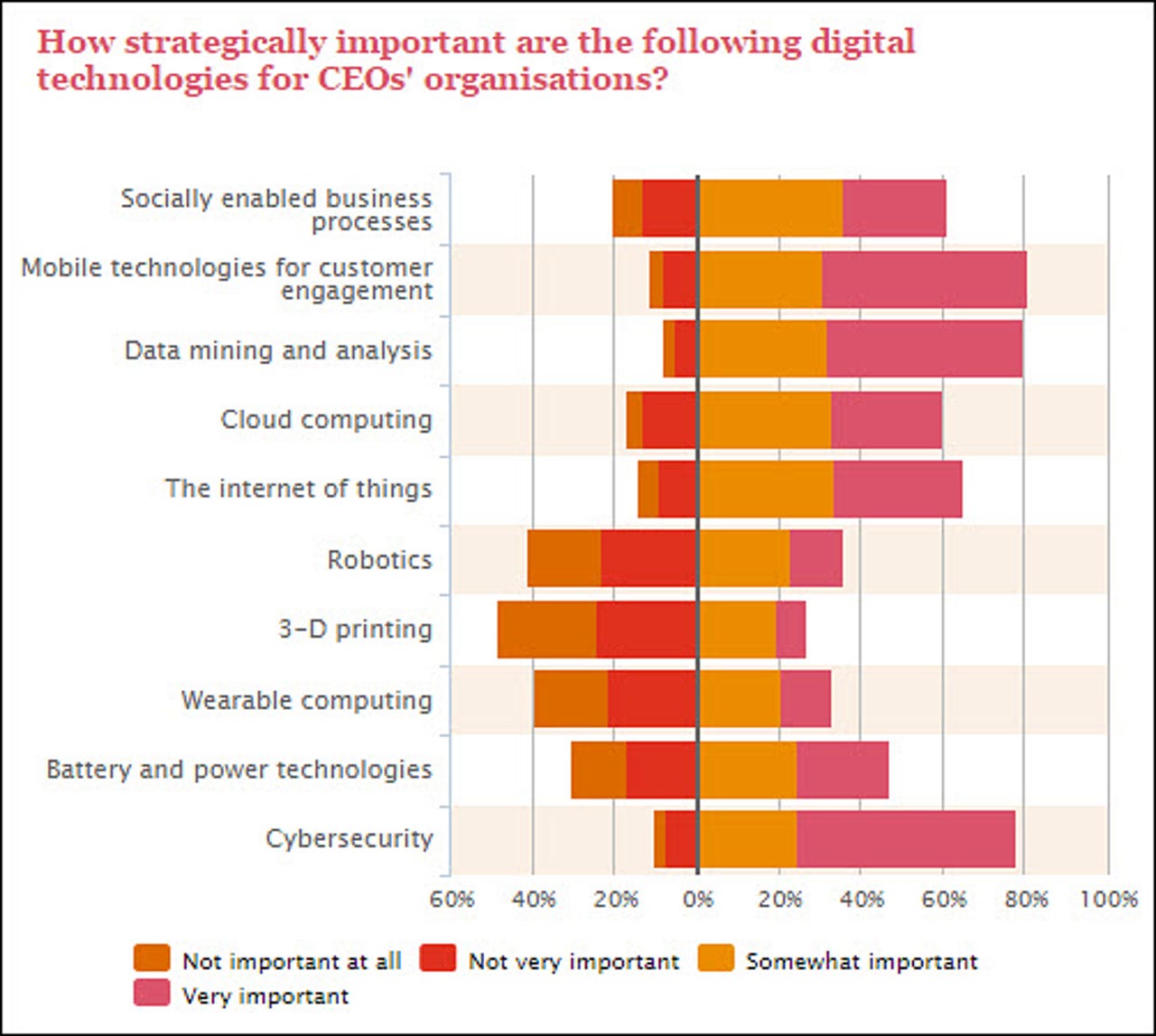IT survival in a digital world

Traditional IT skills center on technology and infrastructure like servers, databases, and telecom systems. Although important, these skills are rapidly becoming insufficient to meet the expectations of digital business.
To be clear, traditional IT and the CIO are not going away anytime soon. Businesses and the government run on datacenters and applications that require traditional infrastructure and skills. The deep reservoir of existing systems is not going away anytime soon, which should give some solace to folks with traditional IT skills.
However, the writing on the CIO wall is clear: embrace digital technologies, skills, competencies, and business models or your value and influence will decline. Research from PricewaterhouseCoopers on CEO perspectives [PDF] about digital business reinforces the increasing pressure that IT and the CIO will experience going forward.
For this research, PwC interviewed 1322 CEOs to gain their views on a broad range of issues including technology, strategy, human capital, diversity, competition and partnering. The firm has conducted similar research for almost 20 years, making this a particularly valuable and trusted resource.
Research summary
Although the research is broad, we will focus on points specifically related to CEO views about digital transformation and technology.
The first question in the digital transformation topic asked CEOs to rate digital technologies based on their strategic importance.

The results show that CEOs view the following digital technologies most highly:
- Mobile
- Data mining and analysis
- Cybersecurity
- Internet of things
- Social enabled business processes
- Cloud computing
The second question asked CEO respondents which business areas are gaining most value from digital technologies.
The top five are:
- Operational efficiency
- Data and data analytics
- Customer experience
- Digital trust and cybersecurity
- Innovation capacity
Finally, the third question asked CEOs about success factors in gaining most benefit from digital technologies.
The top responses are:
- CEO involvement
- Clear vision of how digital technologies can achieve competitive advantage
- Solid plan for digital investments, including measures of success
What the research means to IT and the CIO
As leading indicators of future investment, the priorities that CEOs place on technology and strategy should be of supreme importance and interest to CIOs. Based on this research, operational stability is only a baseline goal for today's CEO.
More important is CIO's ability to enable technologies that support strategic advantage. Although technology stability and cost control are important, they do not create ultimate value. Innovation and adapting to change are where CEOs prioritize future investment.
For the CIO and IT, digital business has three implications:
1. The IT organization must learn user experience as a core competency. The CEO of Box, Aaron Levie, tweeted, "The debate of on-prem vs. cloud always missed the point: it's not about the architecture, but instead the user experience." This is exactly right and offers a key lesson for IT: digital business means technology in service of the user experience. This is a significant change for technology-driven IT organizations.
2. Digital business demands rethinking ties to functional and line of business objectives. If the connection between IT activities and business benefit is not clear, then the CIO will fail. As technology increasingly becomes commoditized, IT must provide greater business benefit to distinguish itself as a strategic and valuable corporate citizen.
3. The CIO should focus on technology that provides competitive advantage and get involved with planning for corporate-wide digital investments. Taking these steps elevates the CIO from technology provider to genuine business partner. The leap is hard because it requires deep understanding of business context together with significant organizational credibility and political capital.
To elaborate further, I asked PwC Principal and Chief Technologist, Chris Curran, for his advice to CIOs based on the research. Chris also runs the CIO Dashboard blog and oversees the Digital IQ research from PwC:
It's so easy to get caught up in the buzz happening in the marketplace around new products and services. Mobile, IoT, data analytics, cloud, and security remain top of mind - but what's more interesting is what business leaders are planning to do differently to evolve with changes in technology and their specific business needs.
My advice to CIOs is look beyond the obvious bets and traditional investments to experiment with the emerging technologies that have potential to drive value for your specific business objectives.
Digital business will open many doors and create enormous opportunities for CIOs with the right business chops and sophistication. The CEO research presented here is a useful guidepost along the way.
Also read:
HBR: Business Transformation and the CIO Role [PDF]
CIO and IT leaders: YOU hold the burden of proof...
Harvard Medical professor and CIO on failure and massive transparency
IT spend is growing, but CIOs 'just don't get it'
Research: CIO relationships and priorities remain conflicted
Digital marketing and CIO / CMO relationships
Digital transformation: CIO / CMO and the crisis of confidence